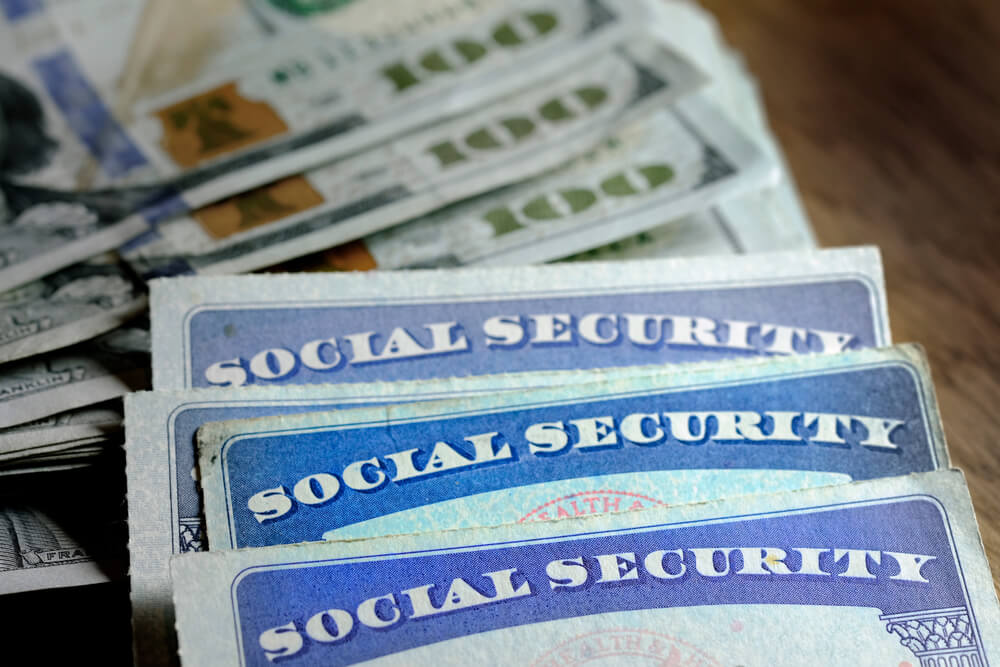You may be looking for extra income after the novel coronavirus wrecked your retirement plans, but there are a few Social Security mistakes you should avoid before doing even more damage.
The unemployment rate in the U.S. skyrocketed to nearly 15% in a matter of weeks, and a shocking segment of those now unemployed are older folks. The Kaiser Family Foundation found that 1 in 5 of the almost 23 million unemployed Americans in April were age 55 and older.
If you’ve been pushed out of the workforce earlier than expected, or your hours have been drastically reduced, you may be eyeing Social Security as a way to make ends meet while the economy revs back up.
But if you are looking at the benefits program that has helped millions of older Americans since 1935, you should be aware of some Social Security mistakes to avoid.
3 Social Security Mistakes
1. Not Claiming if You Really Need It
Delaying Social Security for as long as possible means your monthly checks will be bigger, but that doesn’t mean you should deny yourself valuable income if you truly need it.
If you need to pay an important bill and Social Security would help you do that, you may want to consider it before throwing it on a credit card and having to pay off high-interest debt.
This measure should probably be a last resort, and the good thing is that if you start your benefits and find a way to make it work without needing the extra income, you can revoke your benefits within a year of starting. The only catch is you must pay back all the money you have received from Social Security.
2. Claiming Benefits Early
Now if you can manage to make ends meet while continuing to delay your benefits, you will avoid another big Social Security mistake.
There are some safety nets in place due to the pandemic that could help you get through this rough patch.
Filing for unemployment right now can lead to an extra $600 per week from the federal government if you were laid off because of COVID-19. That $2,400 per month is $900 more than the average Social Security check.
There’s also the $1,200 stimulus checks that many Americans received as part of an effort to boost the economy. That $1,200 is almost the amount of the average monthly Social Security check ($1,503 in 2020).
Avoiding the Social Security mistake of filing early if you planned on taking benefits later in life means your benefits will build up as you approach full retirement age and beyond. Remember, you aren’t eligible for your full benefit amount until your FRA (somewhere between 66 and 67, depending on your birthday), and your monthly amount will be permanently cut by 8% for every year you file before that.
3. Not Filing for Social Security Because You Are Still Working
 You have to know how to play this right, but assuming you have to be retired to apply for benefits is another Social Security mistake you should know.
You have to know how to play this right, but assuming you have to be retired to apply for benefits is another Social Security mistake you should know.
If you are working but your hours have been drastically reduced, you can still receive Social Security if you meet the minimum age requirement (62).
The major caveat here is if you choose to collect Social Security while working, some of your benefits will be withheld until you reach your FRA if you earn too much money.
For every $2 you earn over the $18,240 annual cap, your benefits will be reduced by $1. If you’re going to reach your FRA this year, that cap shoots up to $48,600, and you’ll have $1 of benefits withheld for every $3 you make.
These are just a few of the Social Security mistakes you should try to avoid, or at least be aware of, if you’re trying to figure out how to use the benefits program to your advantage after the economic shock that is COVID-19.
• You can find all of the latest and most important news about Social Security here on Money & Markets.




